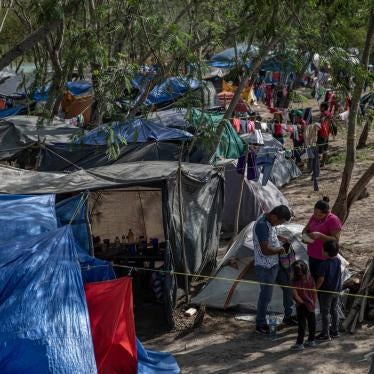World Refugee Day falls on June 20. That will be about midway through the 30-day comment period on a draconian new US regulation that puts the finishing touches on the Trump administration’s efforts to redefine refugees so that virtually no one will qualify for asylum.
The 161-page regulation builds on three years of executive orders, proclamations and regulations that amount to the Trump administration thumbing its nose at the principles of refugee protection that have been enshrined in international law since the close of World War II. It has blocked asylum seekers from reaching ports of entry, held them in Border Patrol custody without access to counsel, made them wait in danger in Mexico while their cases were pending, sent them to a third country to seek asylum there, and used the cover of the COVID-19 pandemic to expel them without hearings.
International and US law define refugees as people who have fled their countries on a well-founded fear of persecution because of their race, religion, nationality, membership in a particular social group, or political opinion.
The Trump administration attempts a new definition of persecution that requires “actions so severe that they constitute an exigent threat.” To qualify, you would essentially need to show that a gun was held to your head.
The regulation redefines the protected grounds for refugee status, for example, by saying that an asylum seeker’s political opinion would have to relate specifically to political control of a government. Human rights defenders persecuted because they called on existing leaders to reform would be ineligible for asylum because they had not advocated regime change. It also limits situations in which people targeted for their opposition to gangs or armed groups, such as the Taliban or ISIS, or who resist such groups, could claim they were being persecuted.
The regulation gives a laundry list of grounds for persecution that generally will be excluded as a basis for asylum, including gender. Under this regulation, a woman such as Rahaf Mohammed Al-Qanun, who found refuge last year in Canada after fleeing her abusive family in Saudi Arabia, would not be granted asylum by the United States.
It explicitly excludes from protection people who are tortured by “rogue officials.” Although torture is frighteningly common, it is extremely rare for any government to openly acknowledge that it condones torture by its officials. Once the evidence of torture is irrefutable, most governments will, at most, concede that “bad apples” acted on their own, thereby denying chain-of-command responsibility for a serious international crime. This regulation not only accepts the bad apple excuse on its face, absolving the governments of responsibility, but also denies torture victims protection.
The regulation excludes from asylum people who fear being returned to countries with “generalized violence or a high crime rate.” While generalized violence never has been a statutory basis for asylum, spelling out its exclusion in regulation signals to immigration judges and asylum officers that coming from countries of generalized violence may be a disqualifying factor when considering asylum claims; this and other dog whistles throughout the regulation also imply that Central Americans are its primary target, consistent with Trump’s past discriminatory comments about an “invasion” of gang members from Central America at the southern border.
The regulation bars evidence that supports an asylum claim if it could be seen as “promoting cultural stereotypes.” On this basis, an immigration judge could throw out evidence from a woman fleeing spousal abuse or a gay man facing a death threat because the judge thought it promoted a cultural stereotype.
But most victims won’t get that far. Not only does the regulation allow an immigration judge to deny an asylum claim without a hearing, but it also codifies a long series of new measures the administration is already using to block asylum seekers from having the substance of their claims considered at all. It starts with establishing a presumption that victims of non-state actors, such as gangs, need not flee their country at all; it requires people fleeing gangs to show “by a preponderance of the evidence” that there is nowhere inside their country where they could have fled. Then, it allows as a basis for denying an asylum claim that the claimant did not first seek asylum in a transit country before entering the United States.
No one expects parades or fireworks to mark World Refugee Day. But taking a moment to sit down and write a comment on the regulation would be an appropriate way to mark the occasion. So would an expression of solidarity with refugees, and affirmation of the values that underlie the right to seek asylum and the responsibility to provide it.









